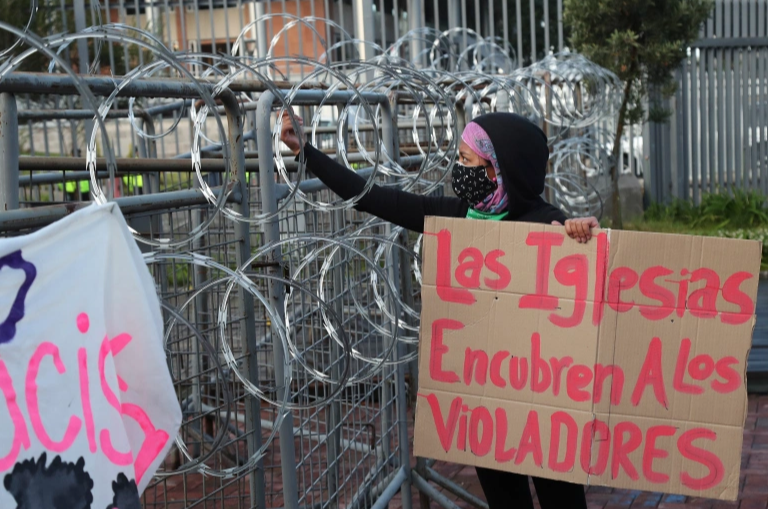
A woman holds a banner that reads in Spanish 'The church covers up rapists' during a pro-abortion rights protest in Quito, Ecuador [File: Dolores Ochoa/AP Photo]
Quito, April 29 (RHC)-- Ecuador’s Constitutional Court has decriminalised abortion in cases of rape, the country’s human rights ombudsman announced -- a significant step in Catholic-majority Latin America where the termination of a pregnancy is largely taboo.
Ombudsman Freddy Carrion announced the court’s decision on Twitter, and said the ruling “was possible thanks to the women and feminist groups who have consistently battled for a more fair and egalitarian society."
In Ecuador, a conservative country with an 80 percent Catholic population, a woman risks up to three years in prison for having an abortion. The procedure is allowed only when a woman’s life or health is at risk or if a pregnancy is the result of the rape of a woman with a mental disability.
In 2019, the National Assembly of Ecuador had voted against decriminalising abortion in other cases of rape or fetal malformation. Throughout Latin America, women’s rights organizations have been pushing for a change in abortion laws.
In January this year, Argentina became only the fourth country in the region -- after Cuba, Guyana and Uruguay -- to authorise selective termination of pregnancy.
Carrion’s office said the court’s decision was taken with seven votes to two. “From today, no raped woman will be criminalised,” it said.
Every day six girls have an abortion in Ecuador, according to figures from the ombudsman’s office. Among those below the age of 14, 80 percent of pregnancies are due to sexual violence.
Some 2,500 girls below the age of 14 give birth each year in Ecuador after they were raped, according to local feminist groups. President-elect Guillermo Lasso, a conservative Catholic and vocal pro-abortion rights advocate who takes office on May 24, said he has “full respect” for the court’s ruling.
“The independence of the government branches and the secular nature of the state are principles that cannot be negotiated,” he said in a statement.

